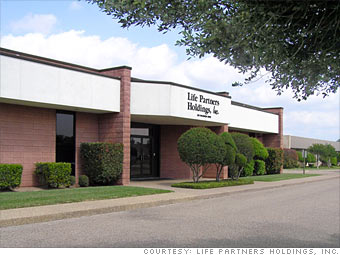© 2012 The Texas Lawbook.
By Natalie Posgate
Staff Writer for The Texas Lawbook
An Austin judge removed a month-old temporary injunction against Life Partners Holdings, Inc. that prohibited the Waco-based company and its subsidiary Life Partners, Inc. from selling its policy interests to investors.
Travis County District Judge Stephen Yelenosky on Tuesday reversed an earlier opinion that Life Partners’ policies are classified as securities – a decision that is a major blow to Texas Attorney General Greg Abbott’s efforts to prosecute the company for allegedly violating the state’s securities laws.
The State of Texas had originally sued Life Partners in August for allegedly violating the Texas Securities Act by fraudulently selling unregistered securities to investors that were deceptive in their actual value.
After two days of testimony, Judge Yelenosky ruled in LPI’s favor that its products are not securities, thus dismissing the temporary injunction.
 LPI president and LPHI general counsel Scott Peden told Bloomberg after the hearing that they were “very pleased with the result and are pleased to see that justice was done.”
LPI president and LPHI general counsel Scott Peden told Bloomberg after the hearing that they were “very pleased with the result and are pleased to see that justice was done.”
AG spokeswoman Lauren Bean said that Abbott will immediately appeal the decision to the 3rd Court of Appeals.
“While Life Partners may have convinced the trial court to accept its argument, the State will immediately appeal and will continue fighting to protect investors who were defrauded by Life Partners’ illegal scheme,” Bean said in an e-mailed statement.
Life Partners is a life insurance investment company that is in the business of buying death benefits from elderly or terminally ill policyholders and reselling them to investors.
According to the lawsuit filed in August, Life Partners has more than 29,000 investors nationwide. As of Dec. 31, 2010, the company held 3,879 policies, in which 81 percent of them were beyond the contrived life expectancy estimates provided to investors.
© 2012 The Texas Lawbook. Content of The Texas Lawbook is controlled and protected by specific licensing agreements with our subscribers and under federal copyright laws. Any distribution of this content without the consent of The Texas Lawbook is prohibited.
